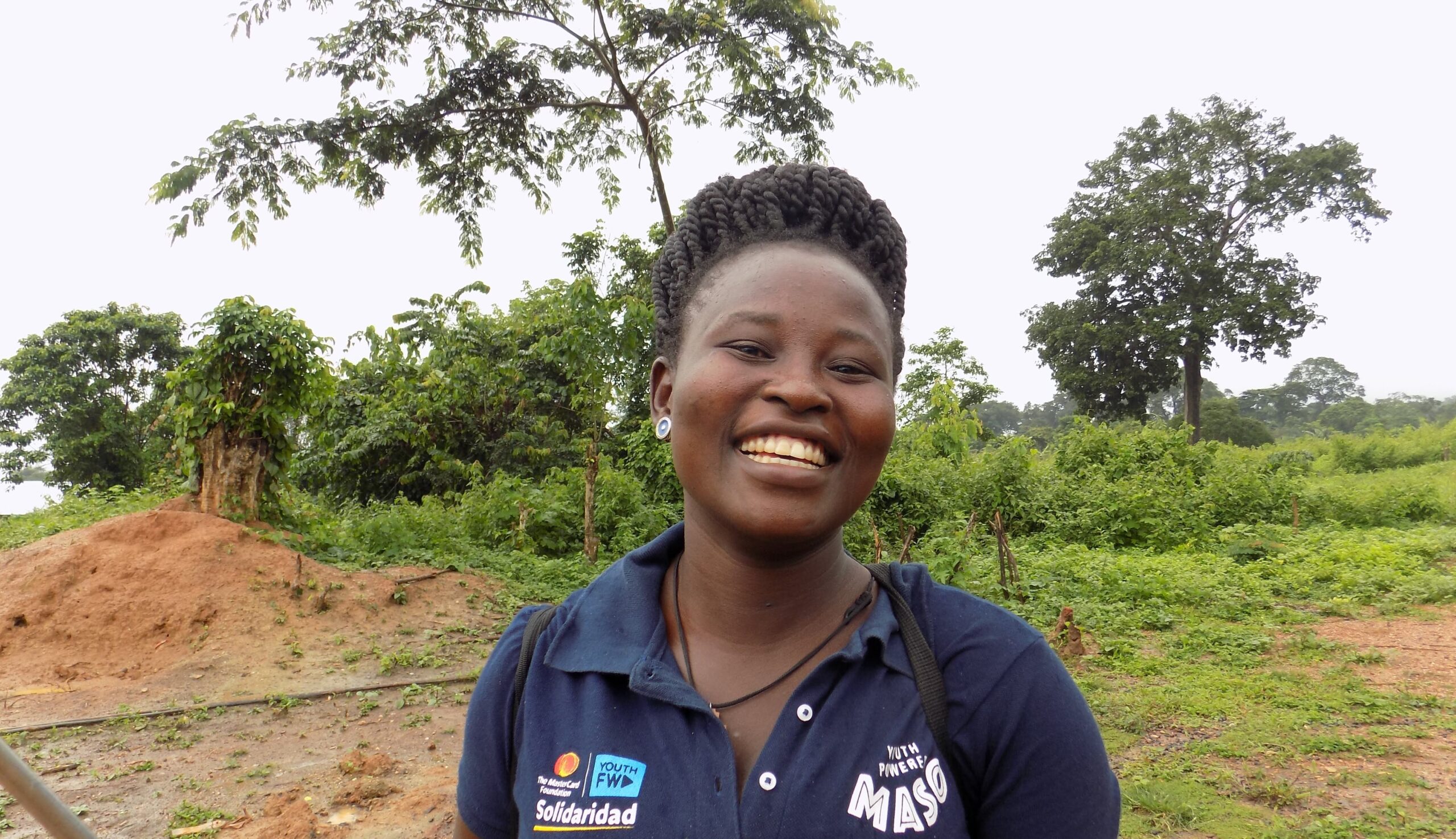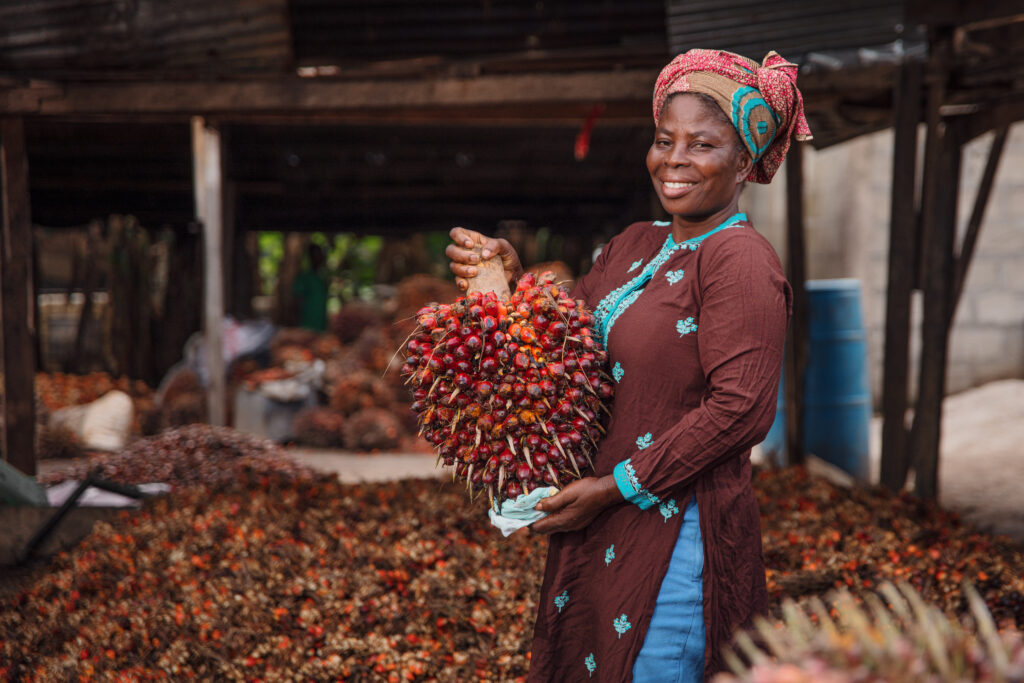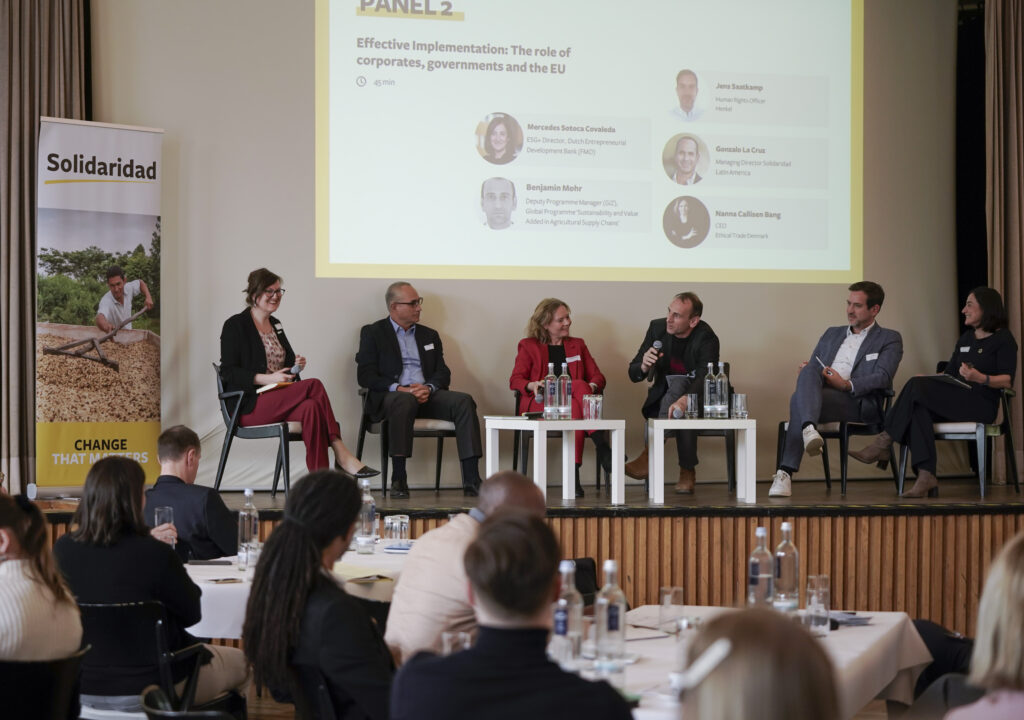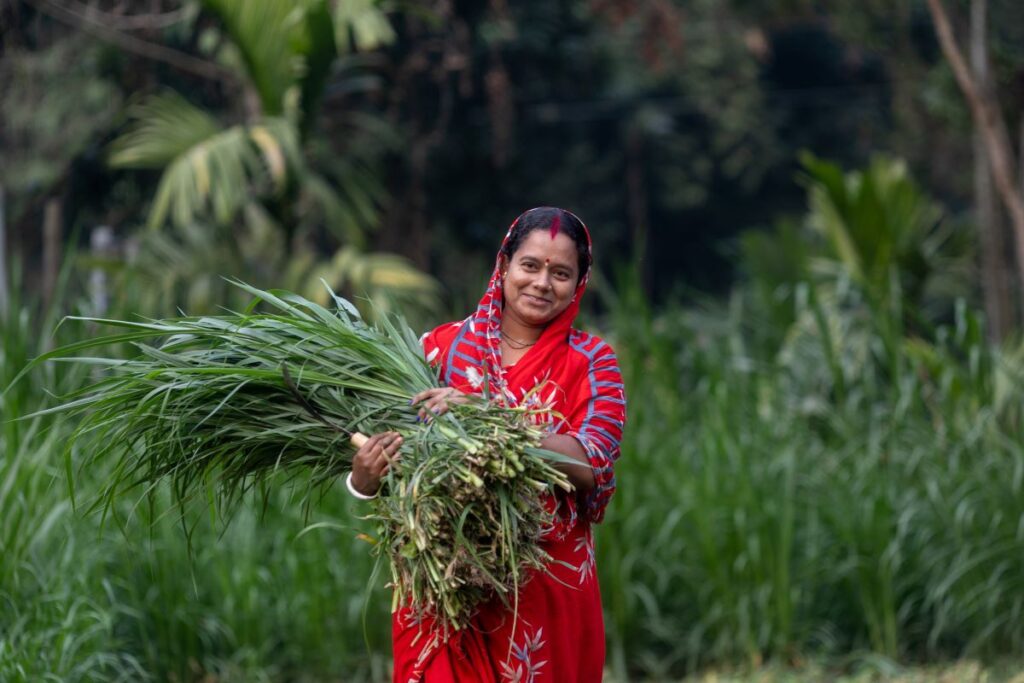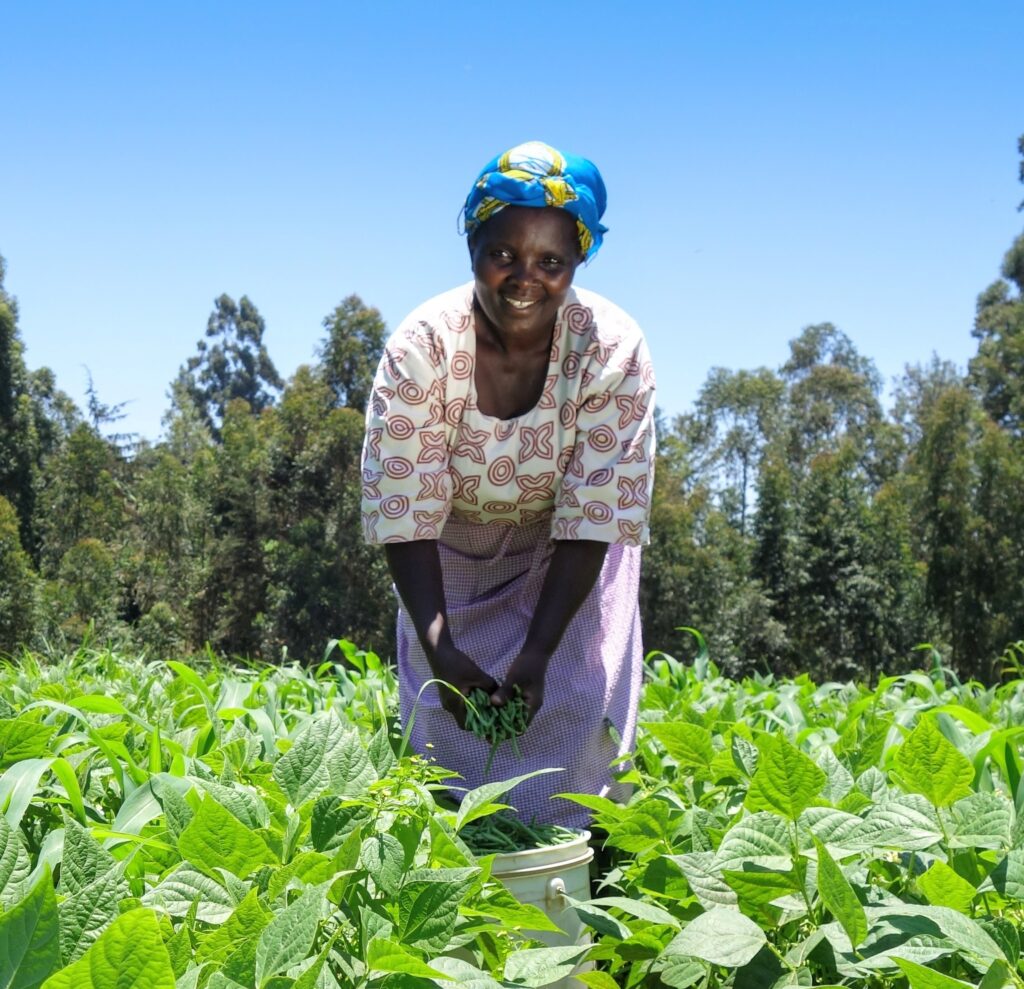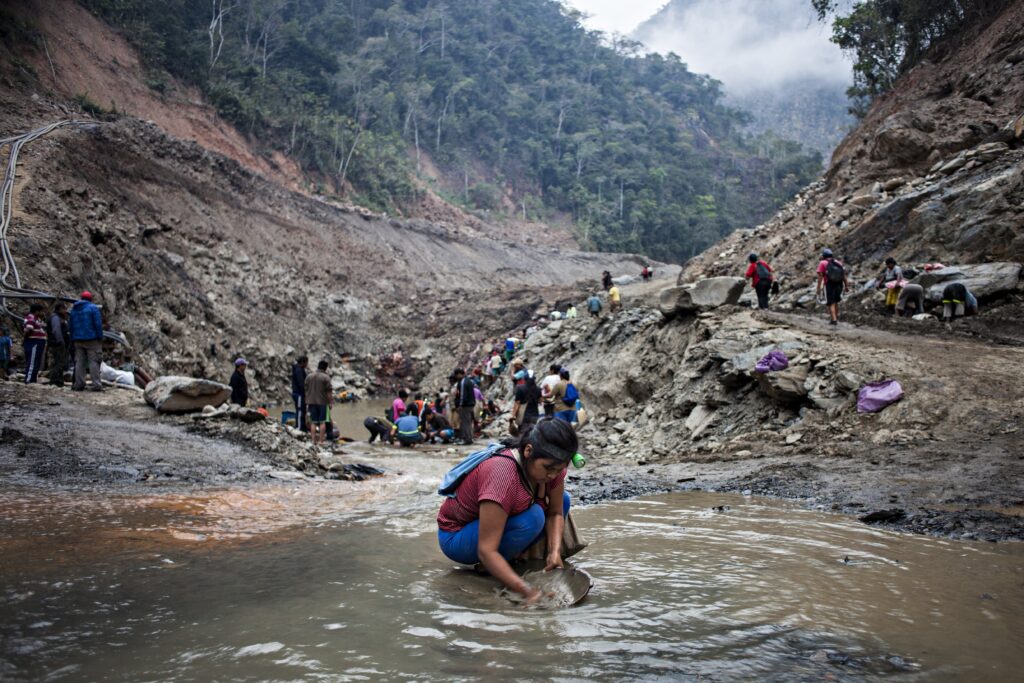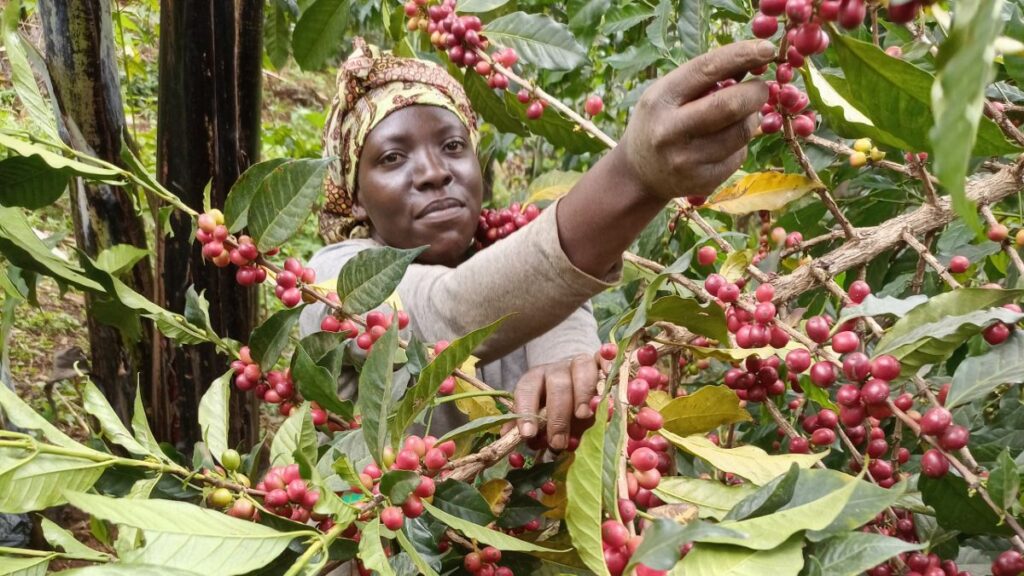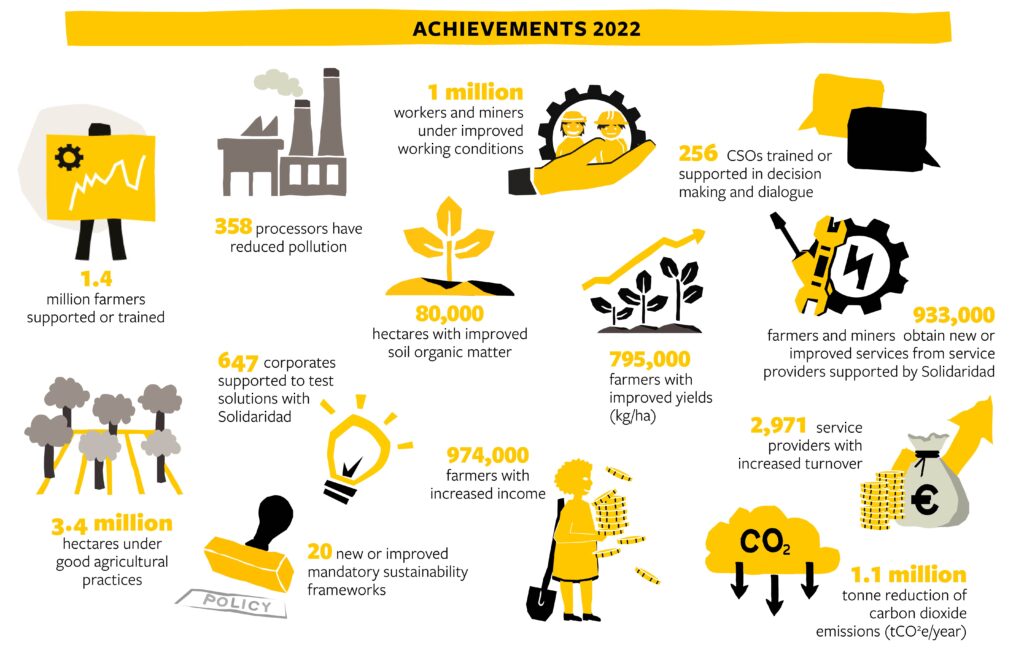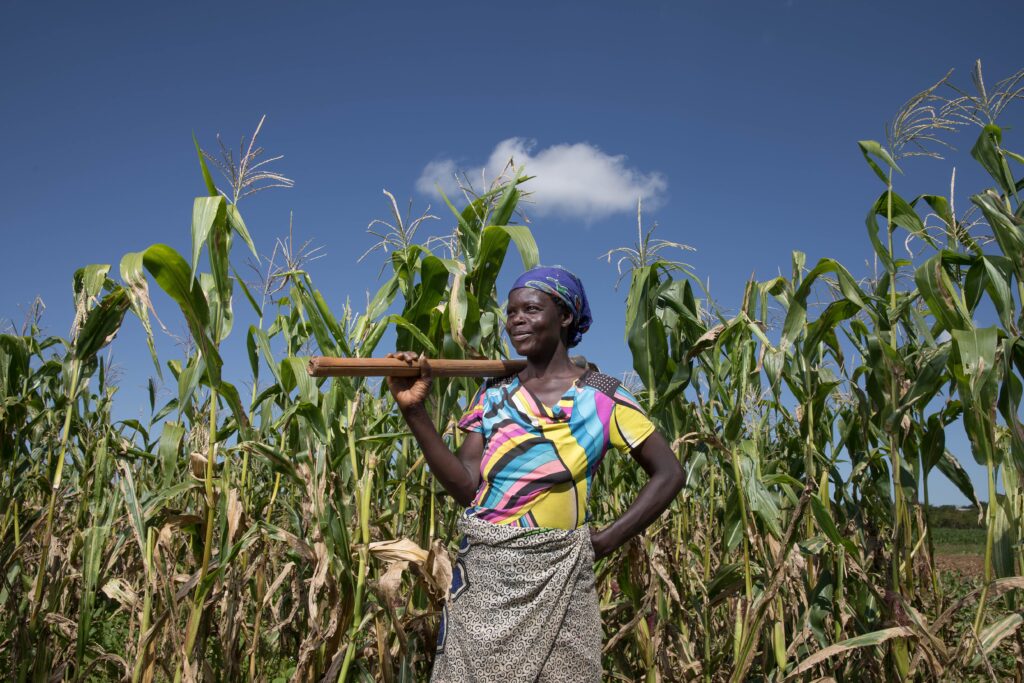In our work, we come across numerous people with great potential and ambitions to succeed, improve their communities, and start up or grow their businesses. What often stands in their way is the lack of access to affordable resources, the right networks, and markets to realize their ambitions.
Consider the story of Patricia Owusu from the Pampawie community in Ghana (see photo above), who graduated from Solidaridad’s ‘Next Generation Cocoa Youth Programme’ (2015-2020). Following her graduation, Patricia was able to make a real change in her livelihood and that of her family: she now grows and sells cocoa seedlings and provides labor services such as pruning, weeding and spraying for cocoa farmers in her community, and those close by. Patricia recruits and trains young adults and offers them a job to assist her in carrying out the work. She was able to establish a two-acre cocoa farm and owns half an acre of ginger farm. Moreover, thanks to the training on savings and financial literacy, she now has better earnings and a savings plan for her income. With the skills she has acquired, Patricia is optimistic and confident about the future.
Our global economy fails to reward millions of producers
Stories such as Patricia’s are an inspiration for us to continue our work towards inclusive and sustainable value chains. However, despite these successes, there is still a long way to go towards achieving transformative change and taking away the multiple structural and systemic barriers for smallholder farmers, miners and workers. The challenges are numerous and considerable, including these key issues:
- Poverty and inequality exist because our market system fails
Despite efforts and progress made in the past years, most producers and workers are still unable to achieve sustainable livelihoods in production systems. This perpetuates poverty and inequality, especially in rural areas. Child labor, gender inequality, poor working conditions and deforestation remain major challenges.
- Markets are not rewarding sustainability
Too much value is extracted from local communities and ecosystems, and external costs are not taken into account. Trade is concentrated in the hands of a small number of increasingly consolidated (European) traders, brands and retailers, driven by profit maximization. As a result, producers and workers in many producing countries continue to live below the poverty line and face hazardous working conditions in deteriorating environmental conditions.
- Farmers are forced to produce unsustainably due to poverty
Climate change is a daily reality in the lives of many farmers. Trapped in poverty, and lacking economic incentives to do things differently, farmers are forced to make unsustainable choices, such as clearing forest to expand farming, or polluting water sources with waste waters, further jeopardizing livelihoods. The well-being of producers is vital for biodiversity conservation, climate change mitigation, as well as for the prosperity of their families and communities.
All in all, the verdict is clear: our global economy is grotesquely unequal at the core. We must prioritize making the economy work for all people and the planet. For this, we urgently need transformative change.
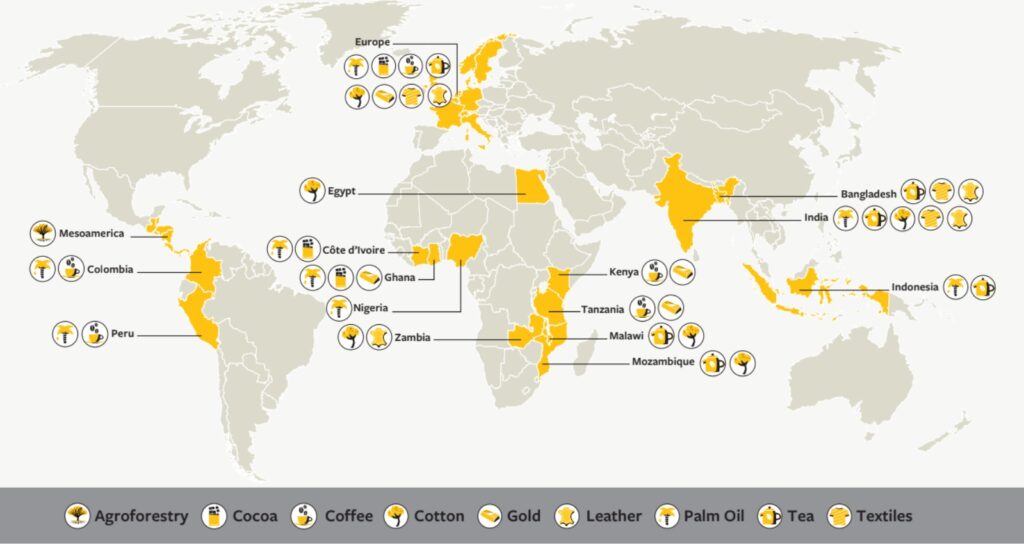
With our Pathways to Prosperity programme, we strive to ensure that producers at the beginning of global value chains thrive through equal and rewarded participation in supply chains that are economically profitable, socially responsible and environmentally sound. We aim to do so by fostering good production practices, better market access and better service provision.
Taking multiple pathways towards system change
Our experience working on sustainable value chains has shown that farmers can make a real difference when it comes to the future of our planet. This makes it all the more imperative to ensure that they (continue to) adopt good environmental practices in production, and have better access to market opportunities.
With Pathways to Prosperity, we will work to address these challenges through a number of pathways which are expected to lead to systemic outcomes with a positive impact. Through this approach, we strive to take away the key barriers for sustainable production and trade, working towards fair and inclusive access to knowledge, skills, services, finance, and rewarding markets. We integrate a financial inclusion approach in these pathways, whereby we will strive to ensure that producers are finance-ready; for example, through stimulating financial literacy and setting up Village Savings and Loans Associations (VSLAs) to help foster this.
With the Pathways to Prosperity programme, we are pleased to continue our collaboration with Solidaridad in striving towards long-term sustainability and inclusivity. We share the ambition of realizing transformative system change that creates a more equal and equitable society, and look forward to the stories of impact made at the beginning of our global value chains.
Isabelle van Tol, Head Trade for Development at Netherlands Ministry of Foreign Affairs
Pathway Knowledge and Skills for Sustainable Production
In this pathway, Solidaridad will focus on addressing the root causes behind the current vulnerable production systems: 1) Limited availability of resilient production systems; 2) Producers lack capacity, knowledge, and entrepreneurial skills and mindsets; 3) Shortage of decent work opportunities; 4) Lacking stewardship over resources to ensure ecosystem services.
In order to tackle these root causes, in cooperation with partners we will offer (innovative) knowledge transfer and skills building to producers, their workers and local communities. Our aim is that small-scale producers adopt sustainable (climate) smart production models, increase and diversify their income and optimize their businesses, offering higher quality products and (ecosystem) services, and more decent jobs.
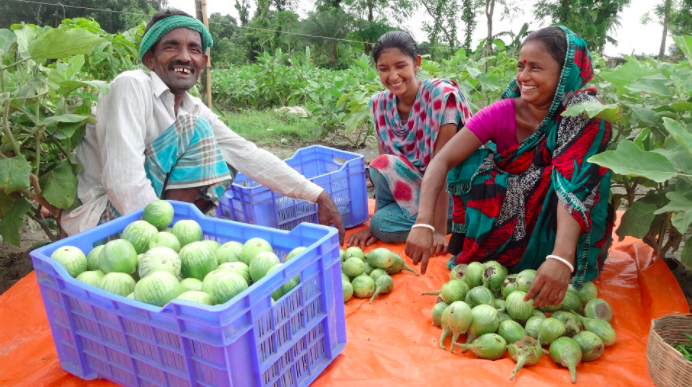
An example of a successful intervention by Solidaridad in this sphere is the Sustainable Agriculture, Food Security and Market Linkages (SaFaL) programme in the south-west of Bangladesh.
In the first phase of SaFaL, almost 59,000 participants benefited from the adoption of good agricultural production, post-harvest management practices, and better linkages with backward and forward markets. This programme is currently being scaled up to include 106,222 farmers with additional export opportunities to Europe (mangoes), Malaysia and Singapore (cabbages).
Pathway Access to Services and Technology
From our years of experience, we have learned that the key barriers to develop, strengthen and maintain a sustainable and profitable farm or mining business lie in the fact that service delivery and technology is either absent or insufficiently responsive to the needs of small-scale producers, women and young adults, and in the fact that producers are insufficiently organized to create a demand for quality services.
In Pathways to Prosperity, we will thus follow a dual approach to address these root causes with parallel interventions: working with producers to create demand for services, and with service providers and technology partners to create a supply of inclusive services.
Cocoa production suffered in my community because farmers lacked adequate farm tools. We used to travel 20-25 miles just to access a tools centre. Being able to access agro-input from the service centre has been a real game changer. I am now able to save the money I would have spent on transportation to purchase or hire tools to work on my cocoa farm.”
Kumba Momoh, cocoa farmer
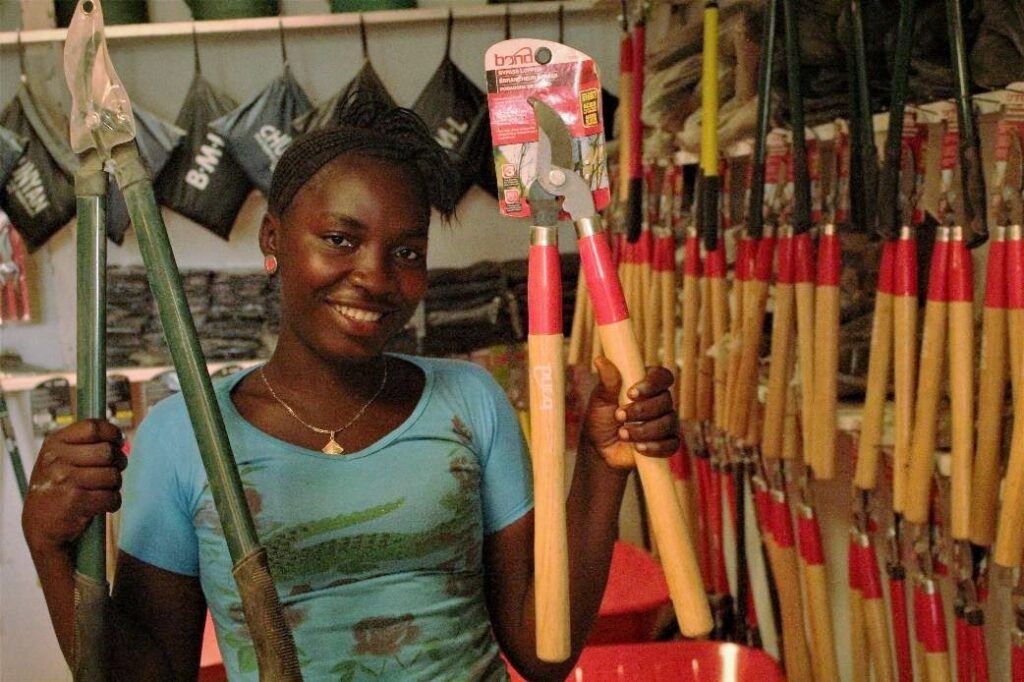
In West Africa, Solidaridad has initiated and supported the establishment of Rural Service Centres to start delivering input and on-farm services to oil palm and cocoa producers. In the past five years, we set up 222 profitable and investment-ready service centres, of which over 50 percent are owned and managed by women and youth. These centres provide improved planting materials, agrochemicals, crop protection, rehabilitation, and extension support to over 44,680 hard-to-reach smallholders. The service centres also pre-finance input and farm management services for farmers who are unable to raise the needed capital for such services.
Pathway Market Connection
This pathway addresses the problem of farmers not being able to meet stringent market requirements, and buyers not willing to reward the farmers for the investments they have to make to meet such market standards. This problem is rooted in unequal power dynamics and lacking business models to trade as well as source sustainably and offer fair prices.
Solidaridad will follow a dual approach: on the one hand, supporting producers with connecting to new markets, and meeting market requirements (including sustainability), such as the EU Human Rights and Due Diligence regulation, to be able to connect to those markets. And on the other hand, co-developing and implementing sustainable sourcing, transparency and traceability, and payment for sustainability models through which sustainable products and ecosystem services can be traded against fair prices, and companies reward producers to undertake sustainable action on the ground. Our advocacy work under the RECLAIM Sustainability! programme is directly complementary to this pathway approach.
Trading my carbon credits is a double benefit, giving sustainability both to the crop and to ourselves as people, as a family, as a community.
Rosa Betancourt, coffee farmer from Colombia
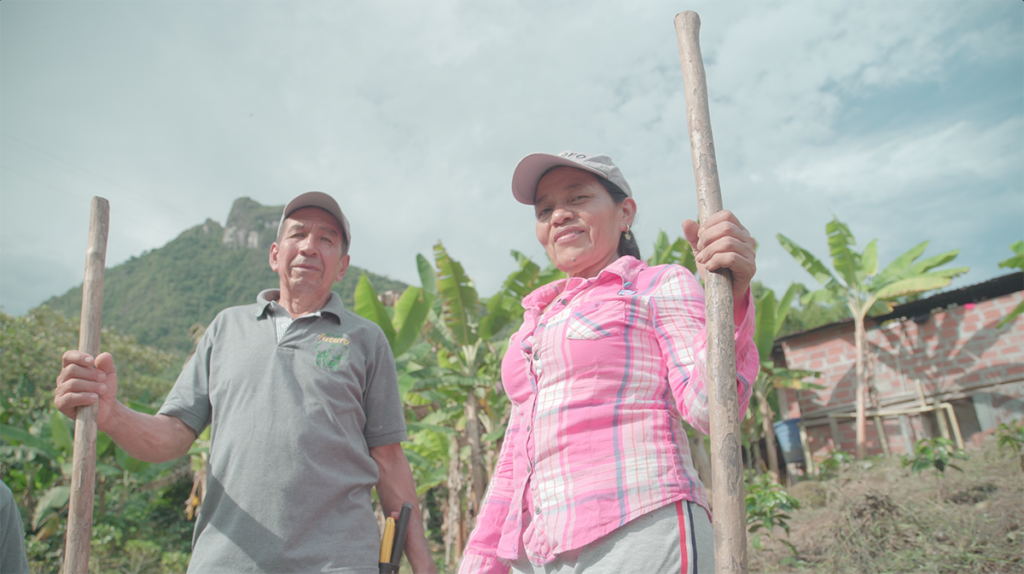
Global demand for carbon removal is growing rapidly and smallholders can contribute to this challenge as they are very well positioned to capture carbon in their trees and soil. In practice, however, the carbon market is difficult for them to access. Together with Rabobank, we developed the Acorn platform. This platform provides easy registration and an attractive carbon pricing to farmers. It also ensures third party verification, while keeping transaction costs low. Thanks to early investments in data collection and monitoring systems in our Colombia and Peru coffee programmes, the first carbon payments to farmers have been successfully executed. We will scale this model and connect millions of farmers to international carbon markets in the coming years.
Core drivers to stimulate effective change
System change is a process that requires partnerships, innovation, experimentation as well as constant learning and adaptation of strategies aimed at the root causes of persistent problems. There are important accelerators, or drivers, that are instrumental to ensure that our impact will sustain over time.
We identified five important core drivers for effective change, as specified in the visual below: 1) Digital solutions; 2) Climate action; 3) Gender and social inclusion; 4) Learning and innovation; 5) Public private partnerships.
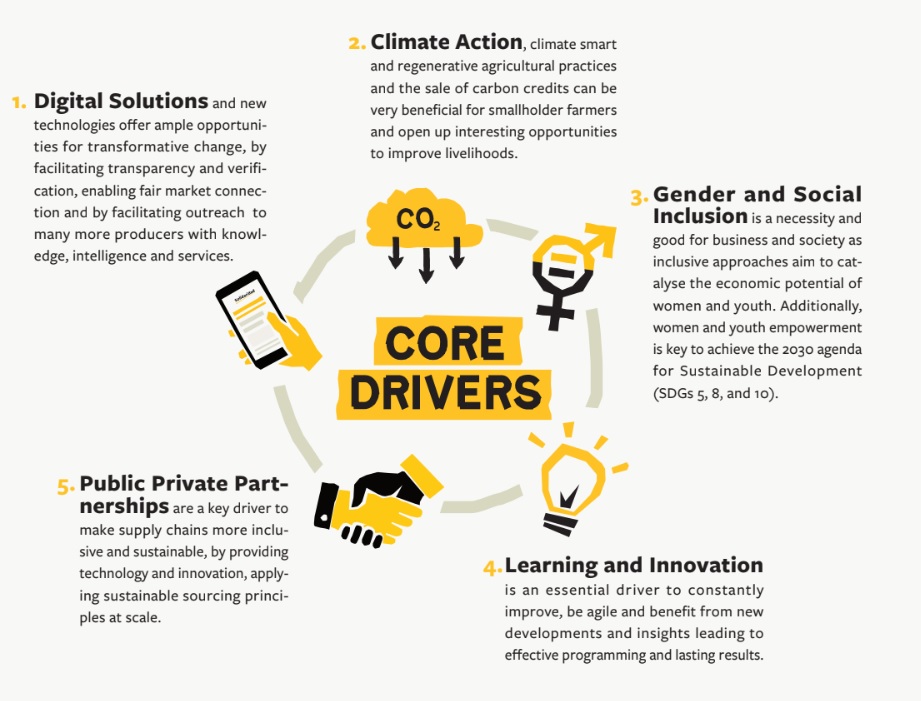
Aligning on goals during the inception phase
A cross-regional team of Solidaridad staff gathered together in Ghana to further design and align on the goals, programming and implementation of Pathways to Prosperity. In his welcome address to the participants of the meeting, Isaac Gyamfi, Regional Director at Solidaridad West Africa, expressed his gratitude to the many colleagues who have worked hard on bringing this programme from proposal to this inception phase.
This document reflects the diversity and inclusivity of Solidaridad and celebrates our ability to seamlessly work together regardless of our regional or cultural diversity. In drafting this document, we ensured an inclusive process in consonance with our raison d’être; an organization that really appreciates and holds in very high esteem diversity and inclusivity both within and without.
Isaac Gyamfi, Regional Director at Solidaridad West Africa
Pathways to Prosperity is a seven-year programme (2023-2029) made possible with the financial support from the Netherlands Ministry of Foreign Affairs. This programme will be implemented in line with our organizational strategy and is complementary with our ongoing RECLAIM Sustainability! programme.

